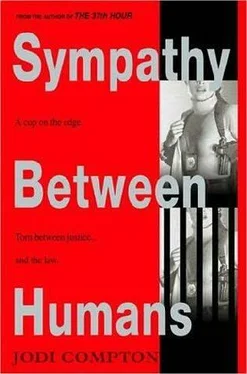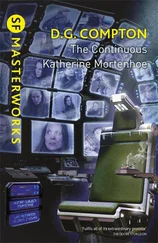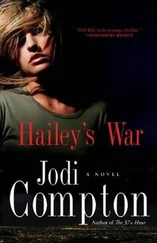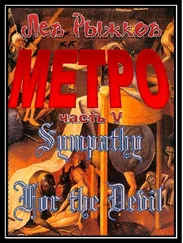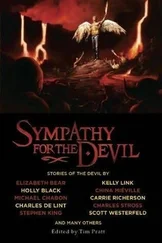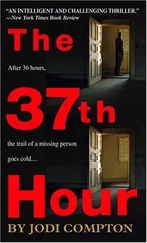“It seems odd to me, though,” I said, “that Aidan didn’t come home for summers, or on holidays.”
Liam looked at the computer screen, blue light reflecting off his glasses, as though the answer could be found there. “Summer is an important time on a farm,” he said, “so it’s unlikely that Pete could have spared him then. As for holidays, I guess Dad felt that Aidan really needed to settle in at Pete’s, and think of that as his home.”
“For five years? That’s an awful long ban on visits home.”
Liam nodded slowly. It was clear he was uncomfortable. “I wish I could tell you more,” he said, “but I was young at the time. No one really explained it to me.”
“Okay,” I said. “If you think of anything else…”
“I’ll let you know,” he said hastily.
I got to my feet. Liam had lifted his long-fingered hands back to the keyboard, as if eager to escape again into whatever he’d been writing when I interrupted him, and I realized for the first time that it might not be homework that absorbed him. Liam, Marlinchen had said, was the aspiring writer among the kids.
On the way out, I paused at the doorway. “What happened to your carpet here?” The edge, where it met the carpeting of the hall, was rough-edged and fraying, as if the person who’d laid it had hacked it off carelessly with a utility knife.
“Dad happened to it,” Liam said, a flicker of amusement on his face. “He put down the carpet in here himself. It’s like that all around the edges. We’re used to it.”
It was true; the whole perimeter of the room looked the same as the doorway, rough-edged.
“Don’t take this the wrong way,” I said, “but was your father drinking when he was on this home-improvement kick?”
It wasn’t as light a question as my tone implied. Whenever there’s trouble in a family, it’s good to know which way the alcohol is flowing, if at all.
Liam smiled, untroubled by my inquiry. “I wouldn’t know,” he said. “I mean, Dad put down the carpet a long time ago, before my time. But I do know that he never drank much, and he quit a few years back. Just for general health reasons. It was never a problem.”
***
Marlinchen walkedme out to my car, after I’d finished. “Were the boys helpful?” she asked.
“Yes, they were,” I said. The truth was that they hadn’t said anything useful, but neither had they seemed deliberately obstructionist. I’d spoken to Donal last, just to be thorough, but he scarcely remembered his older brother, and I’d only spent about three minutes with him.
A white cat emerged from the grass and went to Marlinchen, winding a figure eight around her ankles, pushing its trapezoidal head against Marlinchen’s shins.
“Friend of yours?” I said.
“Snowball,” she affirmed. “Our cat. I hardly ever see her in the daytime anymore. She gets around.” She sat on her heels to run one hand over the cat’s arched spine, then straightened.
“Well, she’s got plenty of room for that,” I said, looking around. The Hennessys and their neighbors had lots of open space between lots.
I also noticed again the freestanding outbuilding that I’d taken for a nineteenth-century carriage house; it was what Colm must have meant by “the far garage,” where he had his exercise equipment. Closer to Marlinchen and me was the lone tree on the bank of the lake. In this area, sugar maples were everywhere, as were smaller spruces and hardy little pines. Lilacs seemed to be the flowering tree of choice; some were still in bloom. This tree was none of them. It was obviously ornamental, deliberately planted in its solitary spot. I didn’t think I’d ever seen one like it before, though its few flowers, cream-colored and orchidaceous, were vaguely familiar.
“What kind of tree is that?” I asked.
“It’s a magnolia,” Marlinchen said.
“Really? I didn’t know they’d grow this far north,” I commented.
Marlinchen’s face was turned from me, looking toward the tree. “It was here when a real-estate agent showed our parents this place. It’s what convinced my mother that this house was The One.” I could hear a smile in Marlinchen’s voice. “She and Dad met in Georgia. She thought it was fate.”
Young. I was young. I was too young to remember much of anything.
That was the refrain I was getting from the Hennessy children, and to be fair, it was probably true. I was overdue for an adult perspective on the Hennessy situation, and with Hugh incapacitated and his wife dead, there wasn’t one.
Hugh Hennessy, though, wasn’t just any citizen. He was a successful writer. At least some of the details of his life must have been chronicled, and would be available to me. For that, I needed the University of Minnesota library.
I started with a Web search on Hugh’s name. It told me that he had written three books, with more than a few years between publication of each. All three were considered to be largely semiautobiographical. The first, Twilight, was an indictment of his parents’ slowly withering marriage in suburban Atlanta. The second, The Channel, was a story about his ancestors in New Orleans, named for the Irish Channel section of that city. The Channel was the book that had sounded vaguely familiar to me when Marlinchen had mentioned it, and now I understood why; it had been his most popular work, praised by many critics as warm without being sentimental, unflinching about American prejudice without resorting to self-pity.
Hennessy’s third book, A Rainbow at Night, was widely perceived as a fictionalization of the Hennessy marriage, which had ended with the death of Hennessy’s wife at age 31. The title came from the protagonist’s thought, verbalized close to the end of the book, that he had once had “a dream of love that was beautiful but ultimately impossible, like a rainbow at night.”
A photo surfaced among the reviews that the Web search turned up. In it I saw a younger incarnation of the invalid I’d seen sleeping at Park Christian Hospital. He was a slight man with thin sandy hair and eyes that looked a pale blue, and his expression was, if not pinched, not quite at ease. His publisher’s Web site also posted his author bio, clearly from the back of Rainbow.
With his first novel, Twilight, published at age 25, Hugh Hennessy told America a cautionary tale about the perils of assimilation and upward mobility set in his own suburban Atlanta. His follow-up novel, The Channel, about his Irish forebears, was both praised by critics and beloved by millions of readers, and adapted into a major motion picture. Hennessy has been a guest professor and writer-in-residence at several American colleges. He lives with his four children in Minneapolis, Minnesota.
I was wrong, though, in expecting to find interviews with Hennessy among the search results. A common phrase in news stories and reviews was something like: “Hennessy, who prefers to let his writing speak for itself…” Here and there was a reference to “a 1987 interview,” or “a 1989 interview.” Hugh had given his last interview, as far as I could tell, in 1990. There were, however, references to longer magazine profiles, and these I found in the stacks.
The longest piece, “A Rainbow in Shadow,” was written for The New York Times Magazine by a former Pioneer Press reporter named Patrick Healy, to coincide with the publication of A Rainbow at Night. I started with his work, and followed up with two other pieces that had run in national magazines.
This is the story that emerged.
Hugh Hennessy was born in 1962, into a comfortable Atlanta suburb. His father was a cardiac surgeon who’d played football in college and had hunted and fished regularly in later life. His mother never worked outside the home. If it was a bad marriage, as Hugh was later to imply in Twilight, it wasn’t the sort of bad marriage that brought cops to the front doorstep. Neither was Hugh troubled as an adolescent, at least in any way that police and available academic records showed. Hugh excelled at all his studies. While his slight stature kept him off the football team, he’d been an aggressive wrestler, posting a good record in his weight class.
Читать дальше
